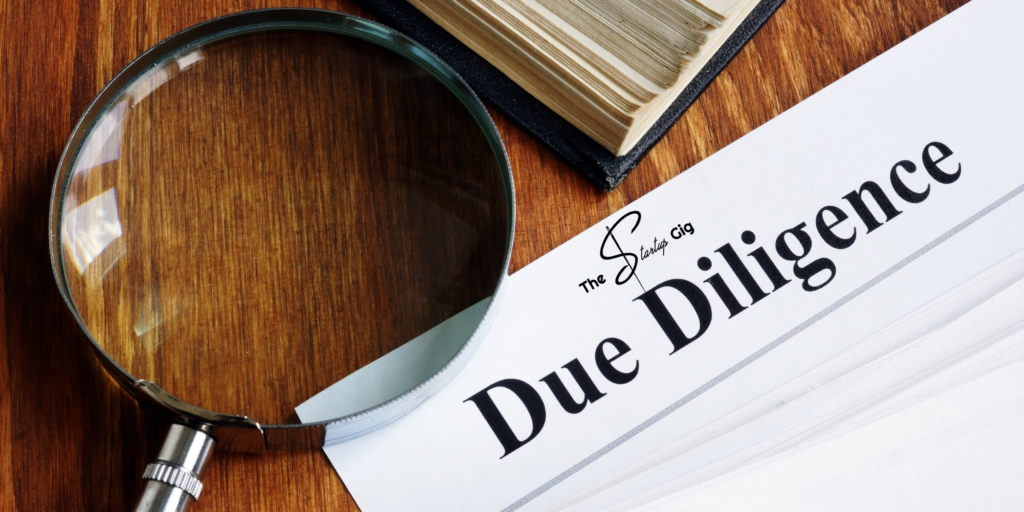Due diligence is basically the prior research process or investigation procedure or verification process through which enough information is collected with respect to a startup or company. This helps an investor or acquirer to make an assessment before making an investment in or acquiring a startup or company. This is a term used frequently in relation to mergers and acquisitions, startups, venture capital funds, angel investors, etc.
A potential investor investing a huge sum of money in a startup( mostly a risky investment) gets an idea, through the due diligence process, of the level of risks that are involved in such investment and its impact. It makes him aware that whether the startup or company he is investing in, will be profitable for him or not. It is a background check conducted on the startup or company in which an investor wants to invest.
If one invests in a startup or acquires it and later discovers that the representations made by the owners of the startup are false and there are risks involved in such a startup then an investor might get trapped in penalties, liabilities, compensation, etc. without doing anything about it. So due diligence becomes necessary. It ensures that the investment transaction is safe. All the relevant and important documents, and information relating to the startup or company, in which an investment is made, are reviewed, and risks are traced by raising red flags.
Further such risks are compensated or a protective mechanism is developed against it by taking the specific representation, warranty, and indemnity from that startup or company or reducing investment in such startup or not making an investment at all. Due diligence can also be done by the startup upon the investor investing in such a startup or acquiring it.

Types of due diligence in Startups
Due diligence can be of various types which include :
- Business due diligence
- Legal due diligence
- Accounting due diligence
- Tax and financial due diligence
- Technological due diligence
- Environmental due diligence
Let’s discuss each due diligence process in detail
Legal Due Diligence
Legal due diligence checks the legal compliances of the startup or company with respect to company acts, labor acts, secretarial standards, etc. In this various contracts and agreements of the startup or company are reviewed and any ongoing or potential litigations are examined. There is checking of important legal documents like incorporation documents, MCA filings, loan agreements and financing documents, business licenses, intellectual property portfolios, business contracts, real estate – lease agreements, rent agreements, land ownership, etc.
Business Due Diligence
The business due diligence involves examining the business model, growth potential, revenue, cash flow, and the profitability of the startup or company in which investment is made.
Accounting Due Diligence
Accounting due diligence involves an examination of the financial information like profit margins for ascertaining whether it is true and accurate as per the accounting records of the startup or company.
The environmental due diligence involves finding out any environmental risks or liabilities while investing or acquiring a startup. Technology due diligence is done if the investment is made in new and innovative technology. It can also involve intellectual property due diligence where highly valued intellectual property is acquired.
Conclusion:
Due diligence varies according to the type of deal. If an entrepreneur or angel investor is making an investment in a startup or company to acquire a 10% stake or ownership then the due diligence exercise would be less. Further, if the same investment is made to acquire a 100% stake or ownership in that startup or company, then the level of due diligence exercise performed in such a transaction would be extremely high. Due diligence carried out for investment transactions is lesser than that of a merger and acquisition transaction.
So this blog will help readers, entrepreneurs, venture capitalists, angel investors, and those planning to make an investment in a startup. It will help them understand the concept behind the exercise of due diligence with respect to any startup or company. In the next blog, we will see the process or steps involved in performing the due diligence of a startup or company.
For any services regarding Due diligence visit The Startup Gig




